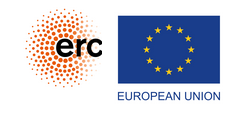Henry Mead published a review of Modernism and Theology by Joanna Rzepa (Palgrave, 2022), in Modernist Cultures 18.1 (Feb 2023), pp. 99-104. Now available online in open access: https://www.euppublishing.com/doi/abs/10.3366/mod.2023.0389
Author Archives: Henry John Mead
Liisi Keedus and Henry Mead gave papers on decadence
“Decadence in Estonian Culture” conference („Dekadents eesti kultuuris: tõlge ja tõlgendus“) took place in Tallinn on 4-6 May.
Liisi Keedus presented the results of her work with Johannes Bent in a paper “Oswald Spengler Eestis: väljavõtteid Teise maailmasõja eelsetest arvustustest ja võrdlus teiste Ida-Euroopa retseptsioonidega.”
Henry Mead gave a paper entitled “An Anarchy of Atoms: Decadence and Organicism.”
More information about the conference, as well as abstracts of the papers, are available here.
Juhan Hellerma on museums and temporality
Dr. Juhan Hellerma, who has recently joined the project, will be giving a talk at the Mõtlev muuseum (Thinking museum) conference organised by Tartu University Museum on the 12th of May. The presentation title is “Mõtestades ajaloolist aega: presentism ja temporaalne provintslus” (“Examining historical time: presentism and temporal provincialism”).
More details and the conference programme are available here.
Liisi Keedus on the interwar intellectual groupings and their avant-garde temporalities
On 28 April Liisi Keedus presented her talk at the EuroStorie Research Seminar, in the University of Helsinki, entitled “ᴍᴎᴘᴄᴋᴏнца and οὐροβόρος: Avant-garde temporalities in European interwar scholarship.”
Abstract of the paper can be found here.
Henry Mead on crisis and renewal in European Modernism
Henry Mead gave a paper entitled ‘Disintegration of the Intellect: Crisis and Renewal in European Modernism’ at the ‘Humanity / Humanities’ April Conference at the Jagiellonian University in Krakow, Poland, on 21 April 2023.
Henry Mead on periodization in cultural criticism
Henry Mead gave a paper entitled ‘Dreams of Reconciliation: Periodization in Cultural Criticism’, at the ‘Periodization and Time in History: Perspectives from Germany, Europe and the Middle East’ conference at Pembroke College, Cambridge, on 30 March 2023.
Ksenia Shmydkaya on displacement
Ksenia Shmydkaya presented a paper at the conference Displacements: Women’s Transnational Trajectories & Artistic Experiences of Emancipation in Central Europe, organised by CEFRES, in Prague, on 16–17 March 2023. The title of her paper was “Roots of One’s Own: Stanisława Przybyszewska and Displacement as a Possibility for (Re)Creation.”
Ksenia Shmydkaya presented on Olga Forsh
Ksenia Shmydkaya gave a paper, entitled “Soviet Fiction, Soviet Values? Reading Olga Forsh’s Historical Novels Today,” at the Annual Historical Fictions Research Conference that took place online on 17–19 February 2023.
Ksenia Shmydkaya’s chapter avaliable online
The collective volume Imagining Gender in Biographical Fiction, edited by Julia Lajta-Novak and Caitríona Ní Dhúill, is now avaliable online. Ksenia Shmydkaya’s contribution to the collection, “Stanisława Przybyszewska as a Case of Posthumous Victimization: on the Ethics of Biofiction,” can be found here.
Ksenia Shmydkaya on gendered epistemologies of literary criticism
Ksenia Shmydkaya participated in the three-days workshop Gendering Epistemologies – Gender and Situated Knowledge Perspectives from Central, Eastern and Southeastern Europe organised by the PECEE Research Group in Czechia on 13-15 October 2022. She gave a paper entitled “Woman’s metaphors and universal truths: on one episode in Poland’s interwar intellectual life.”


